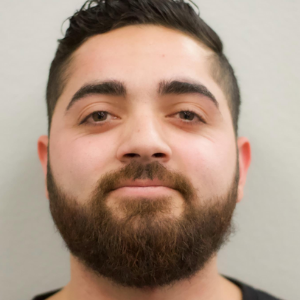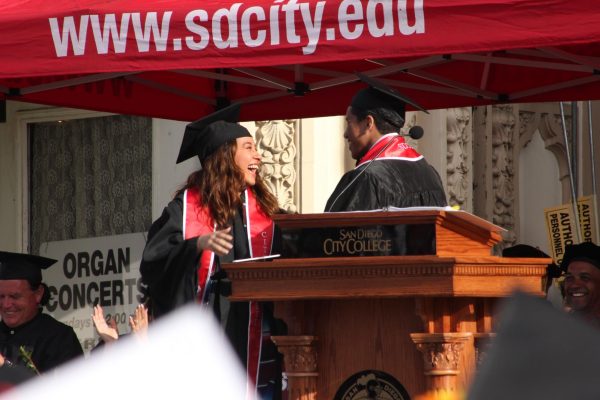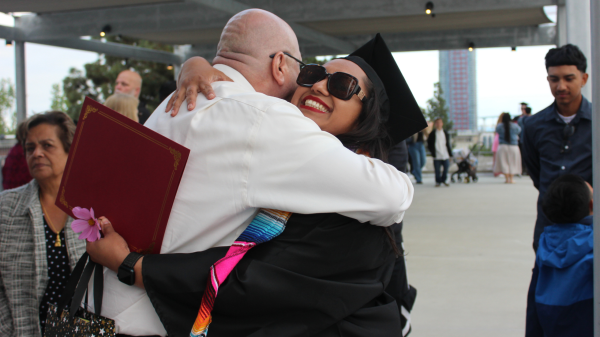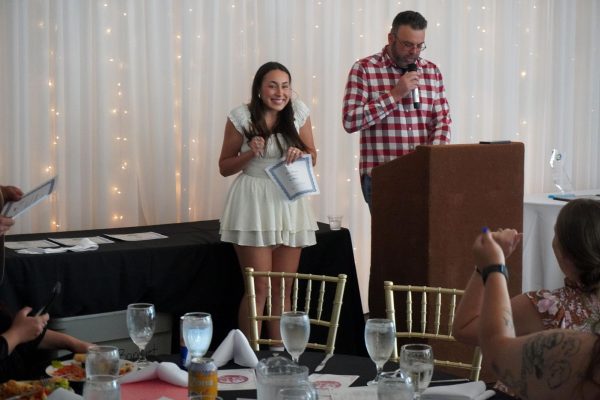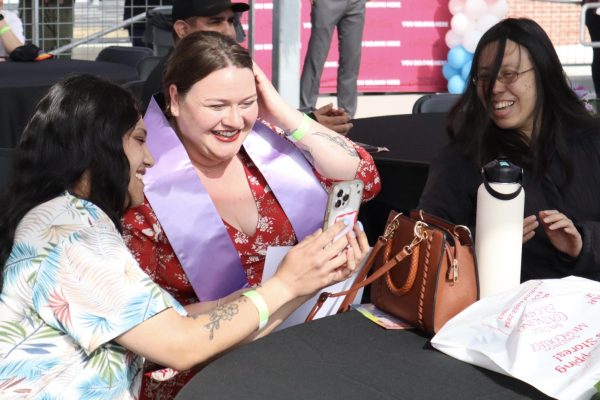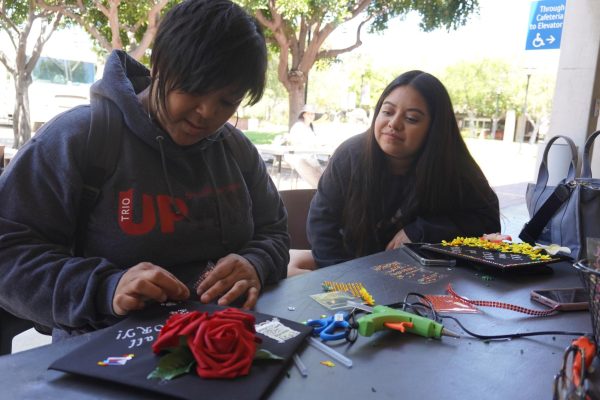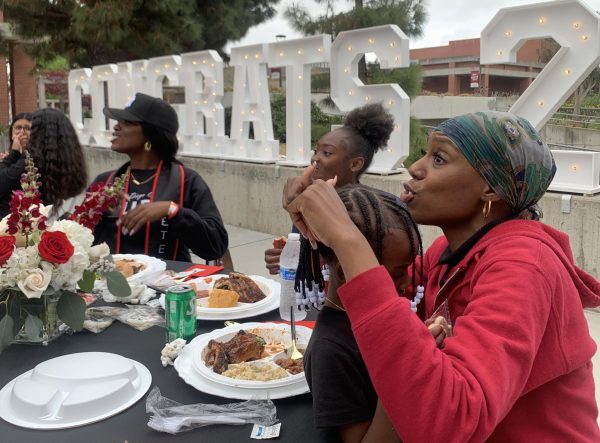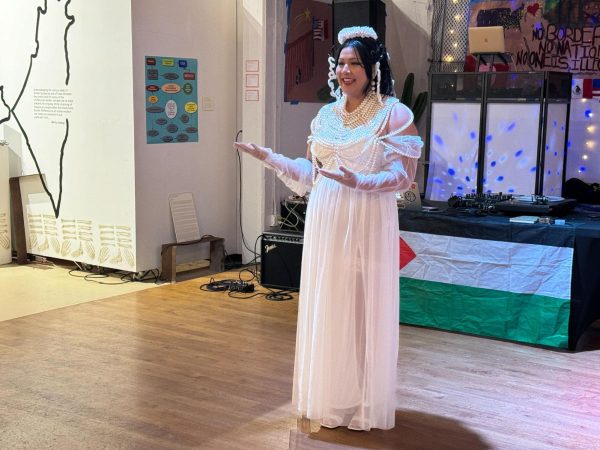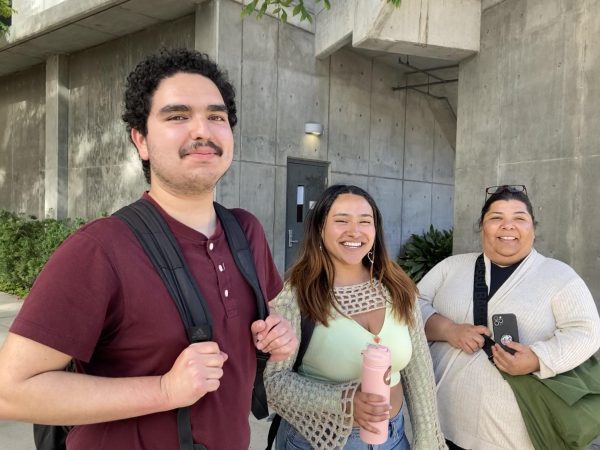San Diego City College Council meeting held
College Council decides to honor Chancellor Constance Carroll
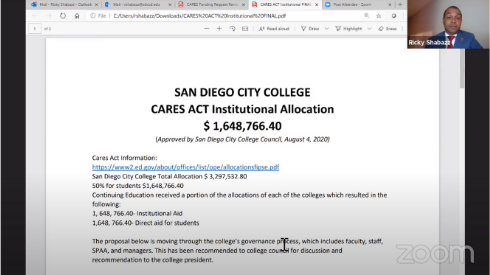
City College President Ricky Shabazz details how federal and state funds will be distributed during a Sept. 22 virtual College Council meeting. YouTube screenshot
September 24, 2020
Constance Carroll has served as San Diego Community College District chancellor for 16 years. She is the first woman and African American to hold this position.
Following Carroll’s recent announcement of her retirement, the College Council at San Diego City voted to name the A Building patio in her honor and dedicate a mural for her outstanding service to the district.
It will unveil the mural design on Oct. 8 at the next College Council meeting.
“We are trying to do something special and different,” said Denise Wisenhunt, vice president of Student Services, during the Sept. 22 meeting, which was conducted on Zoom and live streamed on YouTube.
This was a brighter moment amid the information-packed meeting.
City College is working to get every student a .edu email address, which would give students more access to certain technologies.
“We are pressing forward with that and I hope to have an update in the coming weeks,” President Ricky Shabazz said.
Shabazz also covered the CARES Act, specifically how much federal and state aid has been granted since the pandemic began and where the school is distributing the money.
“I am now officially getting weekly (CARES Act) updates,” Shabazz said.
There are two separate funding sources related to the COVID-19 Block Grant — $324,239 in federal funds that need to be spent by December and $502,468.75 in state funds by June.
According to a government website, grantees may use CDBG-CV funds only for those activities carried out to prevent, prepare for and respond to COVID-19.
The last portion of CARES Act is the institutional allocation, totalling $3,297,532.80. Half of this is dedicated to students, totalling $1,648,766.40.
“I am going to get these resources in the hands of the people who need them,” Shabazz said.


